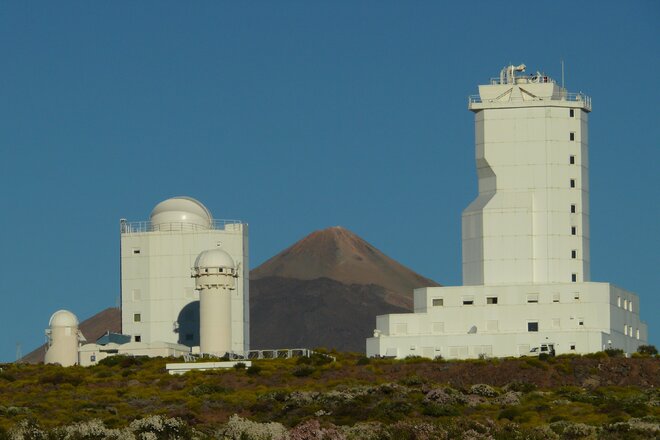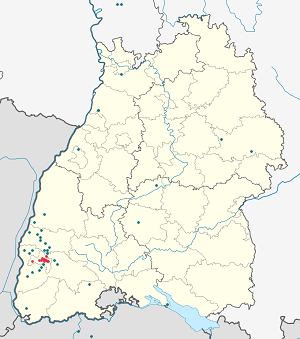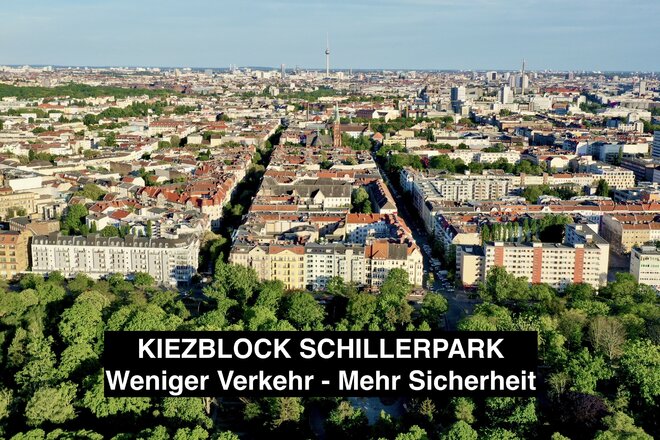3.324 Unterschriften
Petent hat die Petition nicht eingereicht/übergeben.
Petition richtet sich an: Leibniz-Gemeinschaft (Leibniz Association), Ministerium für Wissenschaft, Forschung und Kunst Baden-Württemberg, Bundesministerium für Bildung und Forschung BMBF, Gemeinsame Wissenschaftskonferenz des Bundes und der Länder GWK
We request that the Leibniz-Institut für Sonnenphysik (KIS, previously known as the Kiepenheuer-Institut für Sonnenphysik) in Freiburg, Germany retains its current level of funding, thus securing its continued functioning, ideally within the Leibniz Association. This request comes in response to the recommendation of the Leibniz-Senate: “The Senate of the Leibniz Association recommends that the Federal and State Governments terminate the joint funding of KIS as an institution for research and scientific infrastructure, […]”
We ask the international research community to sign this petition and support the funding of KIS at an unchanged level.
Begründung
The Leibniz Institute for Solar Physics (KIS, https://www.leibniz-kis.de/en) is a research institute in Freiburg, in the state of Baden-Württemberg, Germany, with 70 employees, including 26 scientists. The mission of KIS is to study the fundamental physical processes taking place on our host star, the Sun, which helps us understand Sun-Earth interactions and other stars in the Universe.
KIS has become one of the pillars of the international solar physics community by providing observational infrastructure, fostering innovative research, and educating young scientists. The recommendation of the Leibniz senate implies a very uncertain future for the institute, with the possibility of closure in the upcoming few years.
Termination of the funding for KIS would significantly impact solar physics research, an essential area of astrophysics, in multiple ways:
- First, it would result in the potential closure of the solar observatory, located on Tenerife (Spain), that hosts the largest European solar telescope, GREGOR, and is operated under the leadership of KIS. Hundreds of scientists from all over the world have conducted observations of the Sun with these telescopes.
- Second, it would end the development of cutting-edge technology in Baden-Württemberg of the type operating on, e.g., the Solar Orbiter space mission, the SUNRISE stratospheric balloon-borne observatory, and soon the US-American 4-metre Daniel. K. Inouye Solar Telescope (DKIST).
- Third, it would have negative consequences for advancing theoretical knowledge on physical processes on the Sun, as KIS contributes to the numerical tools and computer models that benefit the entire research community.
- Finally, it would limit the education of young scientists, as KIS offers international training schools at its telescopes, broadens the curriculum of the University of Freiburg by teaching courses in astrophysics, and supervises theses of undergraduate and graduate students. Many scientists that are currently in leading positions worldwide were educated at KIS, or spent significant time there during their careers.
In summary, KIS is a major research centre for solar physics. The closure of KIS would cause the community to lose access to important telescopes, would have negative consequences for prestigious space missions, would halt large international research projects, and would completely remove solar and stellar physics education at the University of Freiburg.
The objectives of this petition are threefold:
- to express that the decision of the Senate of the Leibniz Association is very unexpected,
- to confirm the relevance of KIS for solar physics, and
- to request that KIS continues to be funded in the years to come.
Therefore, we invite you to express your support by signing this petition, ideally before July 31, 2023.
This petition will be handed to the relevant ministries. Optionally, the online form allows you to provide specific reasons for your support, which will make the impact of your signature more substantial. Please keep the tone of your potential additional statements objective and avoid being abusive or rude.
Please share the link to this petition and encourage colleagues to sign it as well.
If you have questions or are unsure, please contact: kis-support@tls-tautenburg.de
Thank you for your time and support!
Laurent Gizon, Max Planck Institute for Solar System Research (http://www.mps.mpg.de/en)
Markus Roth, Thüringer Landessternwarte Tautenburg (http://www.tls-tautenburg.de)
Sami K Solanki, Max Planck Institute for Solar System Research (http://www.mps.mpg.de/en)
Klaus Strassmeier, Leibniz Institute for Astrophysics Potsdam (https://www.aip.de/en/)
Petition teilen
Angaben zur Petition
Petition gestartet:
13.07.2023
Petition endet:
12.10.2023
Region:
Freiburg im Breisgau
Kategorie:
Wissenschaft
Diese Petition wurde in folgende Sprachen übersetzt
Neuigkeiten
-
Petition wurde nicht eingereicht
am 13.10.2024Liebe Unterstützende,
der Petent oder die Petentin hat innerhalb der letzten 12 Monate nach Ende der Unterschriftensammlung keine Neuigkeiten erstellt und den Status nicht geändert. openPetition geht davon aus, dass die Petition nicht eingereicht oder übergeben wurde.
Wir bedanken uns herzlich für Ihr Engagement und die Unterstützung,
Ihr openPetition-Team -
Changes to the petition
am 14.07.2023
Debatte
Ich arbeite als Sonnenphysiker am Max-Planck-Institut an den Projekten Sunrise und SolarOrbiter, für die KIS die Bildstabilisierung entwickelt hat. KIS betreibt außerdem das größte europäische Sonnenteleskop. Ein Schließen des Instituts würde die Technologieentwicklung auf diesem Gebiet nachhaltig schädigen und würde unweigerlich dazu führen, dass Europa den Anschluss an die Weltspitze auch auf diesem Gebiet verlieren wird.
Die unabhängigen wissenschaftlichen Evaluierung der Gesamtsituation stellt beim KIS keine überregionale Bedeutung und kein gesamtstaatliches wissenschaftspolitisches Interesse in dem notwendigem Maße fest. Seit der letzten Evaluierung sank die Zahl der wissenschaftlichen Beschäftigten, die Institutsleitung wechselt in die Schweiz, die Zahl der Drittmittelförderungen ist rückläufig und zentrale Fragen der wissenschaftlichen Strategie sind offen.




